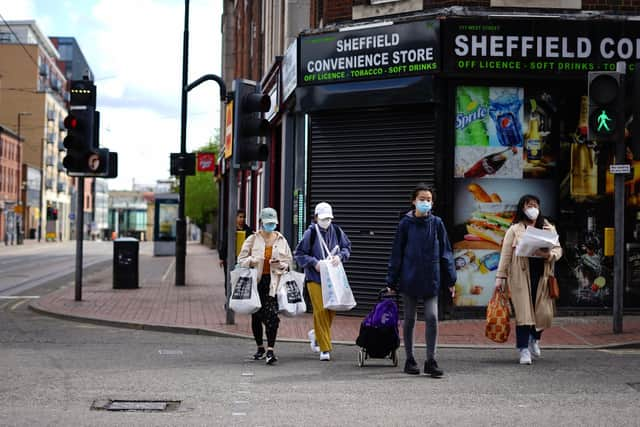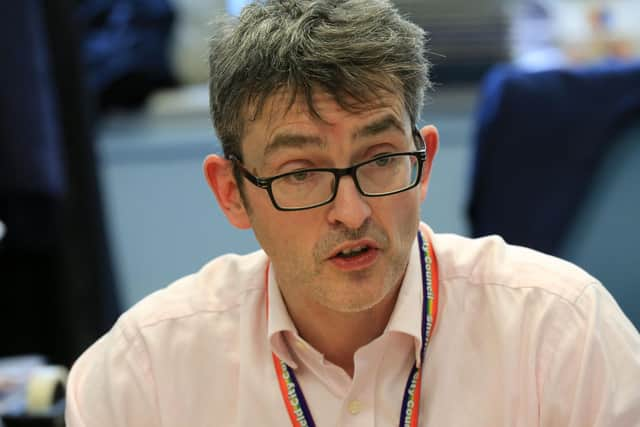Coronavirus infection rates rise in every part of Yorkshire as Sheffield's rate DOUBLES
and live on Freeview channel 276
The data, collected each day by the Office of National Statistics, tracks the number of new cases in each area in the country and from this determines the infection – or incident – rate.
This is given as the number of new cases in the past seven days per 100,000 of the population in a given area.
Advertisement
Hide AdAdvertisement
Hide AdIn Sheffield, the rate rose from 14.5 in the week up to August 28 to 30.6, reflecting 179 new confirmed covid cases in the city in the last week.


In Doncaster, the infection rate rose to 6.4, with 20 new cases. In Rotherham it is 18.2, with 48 new cases and in Barnsley it stands at 24.3 with 60 new cases.
The area in Yorkshire with the highest infection rate is Bradford, where it stands at 70.6, with 381 new cases in a week.
Leeds had 380 new confirmed cases, however its larger population means its infection rate is lower, at 47.9.
Advertisement
Hide AdAdvertisement
Hide AdYesterday, Sheffield’s Director of Public Health Greg Fell said that the infection rate’s recent increase could indicate the beginning of a ‘take-off’ of the virus as it approaches a second wave in autumn.


He said: “This could just be a temporary upwards tick or it could be the start of another take-off.
“We are all expecting an upwards swing in autumn – that is probably unavoidable, with schools going back and universities going back. The question is how low we can keep it. Any increase is a concern.”
Health experts in South Yorkshire are also keen to encourage as many ‘younger, working age’ people exhibiting even the mildest of symptoms to get tested, as the average age of those testing positive for coronavirus has dropped dramatically in recent weeks.
Advertisement
Hide AdAdvertisement
Hide AdMr Fell offered advice on how to get tested locally, following reports that people were being sent long distances for tests as labs struggled to keep up with demand.
A member of the Government’s Scientific Advisory Group for Emergencies (Sage) said the latest increase in coronavirus cases is “very worrying”.
Professor Andrew Hayward said scientists are monitoring the data closely for signs of wider community transmission of the disease.
“Generally it is local outbreaks, but there is also very worrying increases in cases, particularly over the last few days,” he told BBC Radio 4’s Today programme.
Advertisement
Hide AdAdvertisement
Hide Ad“That is what we are really keeping a close eye on – the extent to which it moves away from these local outbreaks to broader community transmission.
“What we saw in the last few days from this surveillance data was this worrying increase in cases which, as we know from the first wave of the pandemic, can potentially get out of hand if we don’t be very serious about the control measures.”